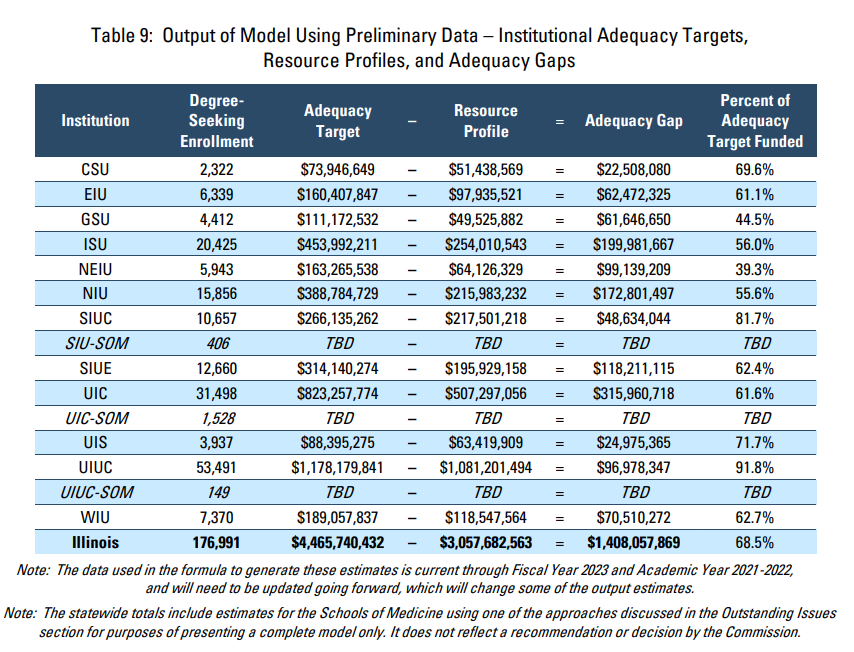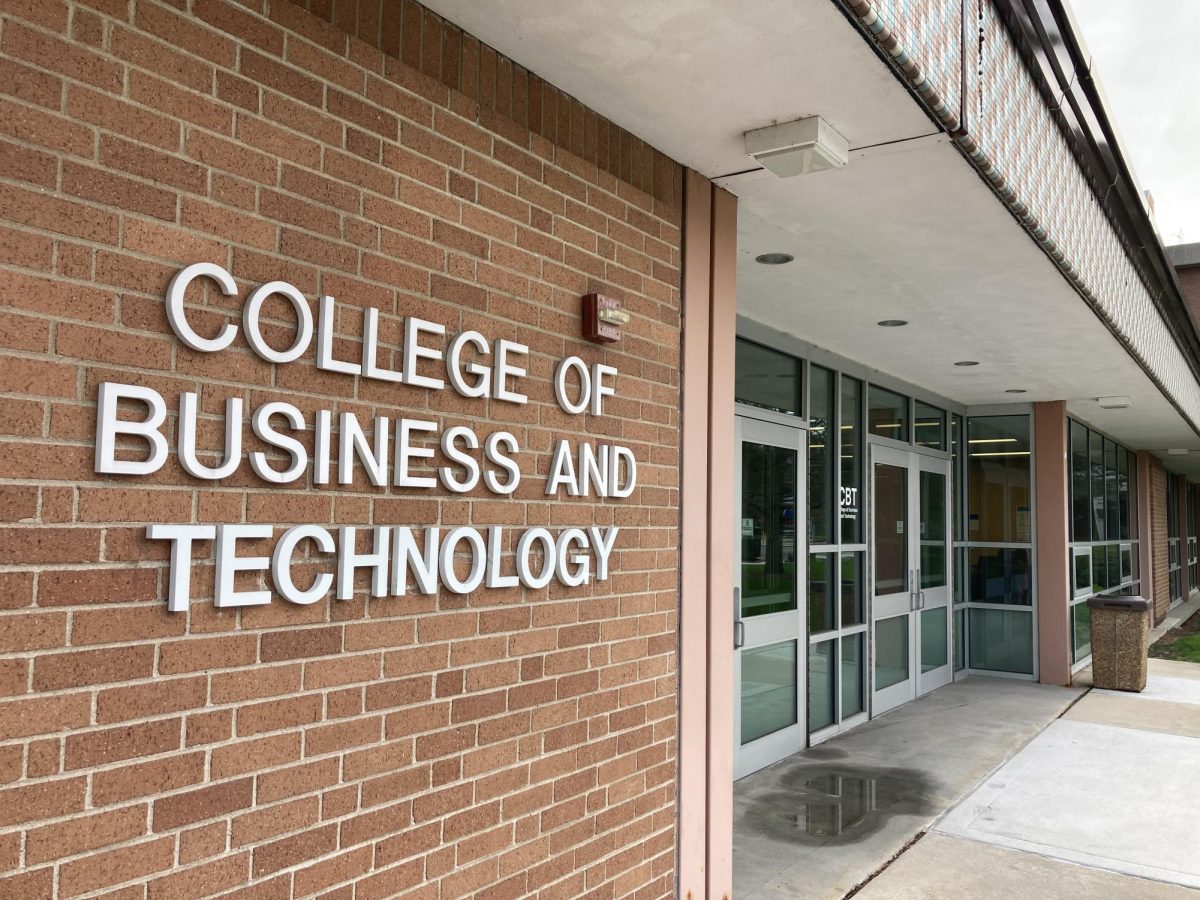Editor’s Note: This article was corrected on 11/25/24. Corrections are noted at the end of the article.
An Illinois State Senate bill would dramatically change the way higher education is funded in the state. The bill, SB 3965, would create the Adequate and Equitable Public University Funding Act which would structure state higher education funding on a formula similar to that used to fund Illinois’ primary K-12 schools.
SB 3965, introduced by Illinois senate majority leader Kimberly A. Lightford and Representative Carol Ammons, proposes a funding model based on individual measurements of adequacy for each public university in Illinois. According to an article in Inside Higher Ed, the bill closely follows language used in a report published by the Illinois Commission on Equitable Public University Funding in March 2024.
What it Does
According to the report by the Illinois Commission on Equitable Public University Funding, Illinois’ schools only receive 68.5% of the funding that they should. However, not every school is underfunded to the same extent..
According to the proposed funding formula, NEIU is the most underfunded university in the state, only receiving 39.3% of the funding that it should be. By comparison, University of Illinois at Urbana-Champaign (UIUC), Illinois’ flagship university, receives 91.8% of the funding that it needs.
Additionally, NEIU’s Institution Funding Profile reports if NEIU were to be adequately funded, the state of Illinois would be responsible for covering 83% of NEIU’s expenses, whereas NEIU’s students would only be responsible for 16%.
Currently, state appropriations only cover approximately 30% of NEIU’s operating budget, while tuition and student fees account for approximately 38%, using numbers from NEIU’s 2024 budget.
If SB 3965 were to pass, NEIU’s overall state funding would increase by $99,139,209 over the span of 10 to 15 years.
Put another way, according to the Coalition for Transforming Higher Education Funding (CTHEF) which gave an informational talk at NEIU on Nov. 7, NEIU currently has approximately $10,800 to spend on each student each year, the lowest amount in the state. Under the new funding model, NEIU’s budget increase would give it access to $27,400 per student, making it the second highest in Illinois, a 155% increase in budget.
“Any new money is going to help NEIU,” Dr. Brooke Johnson, NEIU’s Chair of the Sociology Department and representative to the Illinois Board of Higher Education (IBHE) Faculty Advisory Council, said of what SB 3965 can do for NEIU. “A lot of programs at NEIU are just shoestring, small budgets. People are working with, like nothing. There are very few resources. So I think any additional funding that comes in, has the potential to really transform NEIU.”
SB 3965 does come with its own expenses. The new funding model would cost $135 million in annual investments over 10 years. This would lead to a total cost of $1.4 billion over that time period.
The Current System
“So, looking currently at our funding approach… It’s not driven by much at all,” Eyob Villa-Moges, a senior policy associate from Advance Illinois, part of CTHEF said during the information talk at NEIU. “Our current approach is simply driven by political negotiations of what universities need.”
Under the current funding model each school gets a certain amount of funding, and any percentage increase is across the board to every school, regardless of how well funded they currently are.
“So it bakes in some of the inequalities of funding,” Dr. Brooke Johnson, NEIU’s Chair of the Sociology Department and representative to the Illinois Board of Higher Education (IBHE) Faculty Advisory Council said about the current funding model. “It doesn’t address any inequalities or the different types of students that these universities have, or the different types of program.”
However, from 2015 to 2023, Illinois has cut higher education funding by 22%, adjusted for inflation, according to the commission. This has led to higher fees and tuition costs for students statewide.
“The problem is the state of Illinois just hasn’t adequately funded education,” Dr. Johnson said, “So they’re cutting funding to education, which results in institutions raising tuition and fees to make up for that money. So then it’s becoming more and more expensive for students.”
This can lead to Illinois residents deciding to leave the state to get an education, and then deciding whether to live in another state.
“So sometimes for students, it’s cheaper to go out of state than it is to stay in Illinois, because our costs, our tuition and fees keep rising.” Dr. Johnson said. “Anytime we’re losing students, because students go to other universities, they go out of state, they don’t always come back to Illinois. It can also be a loss of people that are educated, that have skills for the workforce, and we can be losing those citizens.”
Dr. Johnson said anyone who supports this bill should contact their state legislators to show their support for it.
NEIU has this helpful guide for how to identify and contact your state legislators.
Correction: A previous version of this article incorrectly stated the time frames over which SB 3965 would allocate funding, were it to pass.
Correction: NEIU’s state funding would increase by $99,139,209 over the span of 10 to 15 years, not annually as previously reported.
Correction: SB 3965 would cost $1.4 billion over the course of 10 years, not annually as previously reported.







